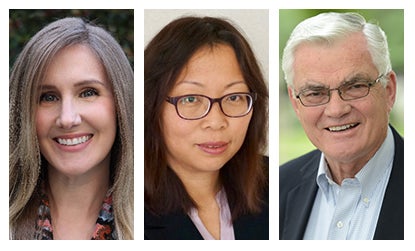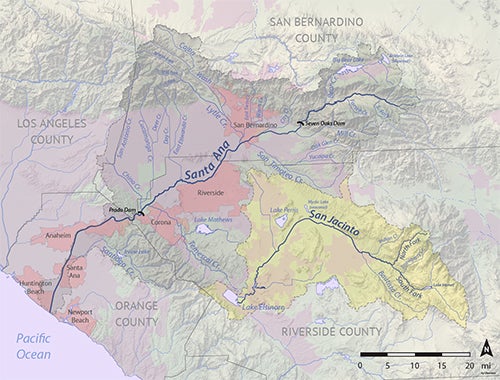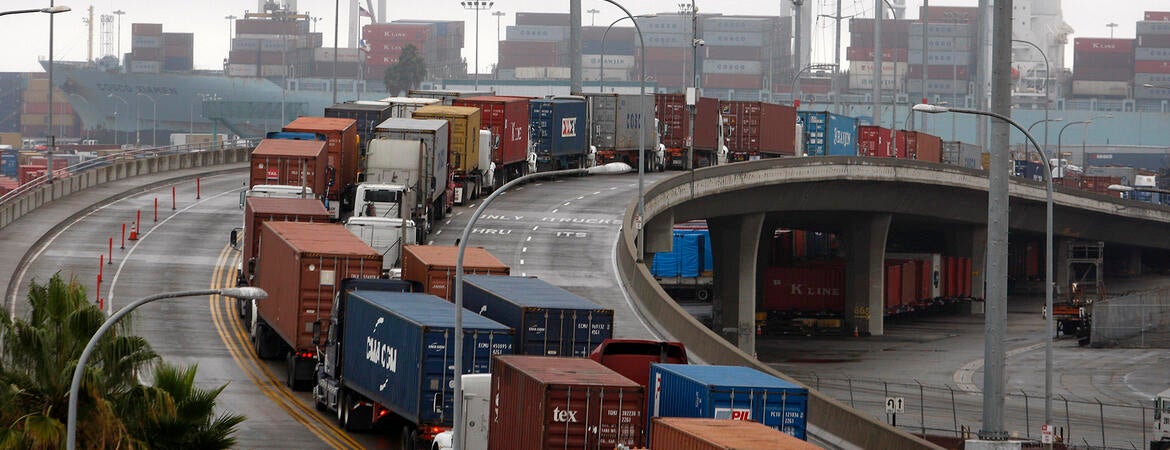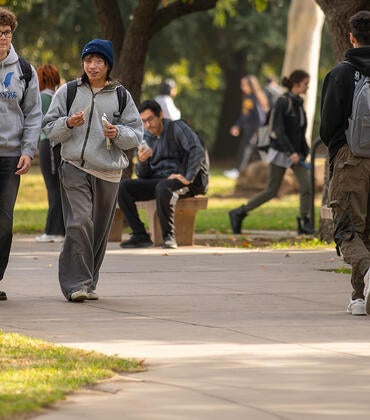UCR’s School of Public Policy has re-launched its community-engaged research center under a new name.
The Inland Center for Sustainable Development, established in 2003, is now the Center for Community Solutions.
In a consolidation, the center also will build on the efforts of the Center for Social Innovation, a previous School of Public Policy research center.

“The two centers were studying similar or complementary topics,” said the center’s new executive director, Justine Ross. “The School of Public Policy thought it would be helpful to bring them under one umbrella.”
Ross took the helm of the center on July 1 and will continue to be the associate director of UCR’s Robert Presley Center for Crime and Justice Studies as she has for six years.
The Center for Community Solutions will continue to focus its research on issues that Inland Empire communities grapple with. It will seek policy solutions that not only improve the Inland area’s quality of life but also can be applied to other regions that face similar problems, said public policy professor Qingfang Wang, the center’s faculty director.
Wang, a UCR professor since 2015, has served as faculty director of the Inland Center for Sustainable Development, or ICSD, for five years and brings continuity by serving the same role with the Center for Community Solutions.
Ron Loveridge, a political science professor and former mayor of Riverside, will serve as an advisor. He is a former ICSD director and deputy director.
The center’s priority is now community outreach, so its research projects are in synch with the most pressing Inland Empire issues, said Wang and Ross.
The center is also preparing a policy report on warehouse development. The topic is a long-standing issue in the Inland Empire that has pitted concerns about truck traffic, air pollution, low wages, and unfair labor practices against economic development ambitions, job creation, and efforts to foster the region’s booming logistics industry driven by increasing volumes of cargo arriving at the ports of Los Angeles and Long Beach.
The report will glean information from a series of public forums held by the center in the past year that sought perspectives from community groups, industry, local government, and academia.
“When we talk about warehousing, we also see the development of the industry and the challenges it is facing in other regions as well,” Wang said.

This center will also continue its administration of the Inland Southern California Climate Collaborative, which is a network of agencies, organizations, companies, and institutions to form partnerships and share grant opportunities and other resources to adapt to climate change.
As part of the collaborative, the center is facilitating planning and research activities to support the Santa Ana Watershed Project Authority’s efforts to adapt to climate change while managing the Inland region’s most important source of water.
The center’s mission “is not purely academic research, and it is not a purely community engagement,” Wang said. “It is community-based research in a sense, but is more about scalable, replicable, and general knowledge that can be used to solve similar problems.”




